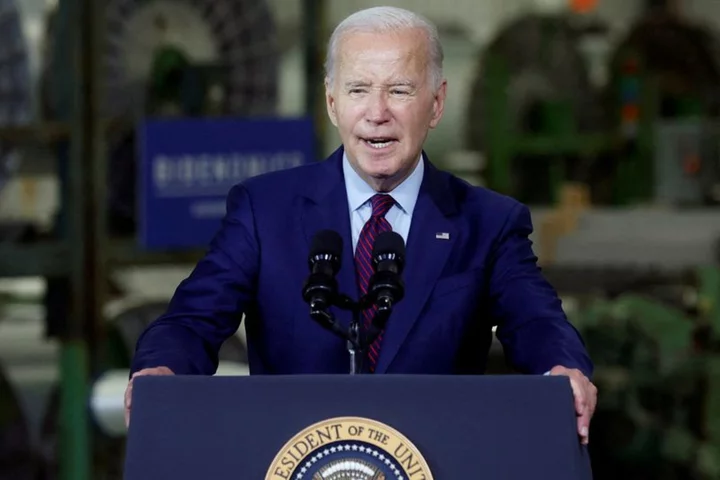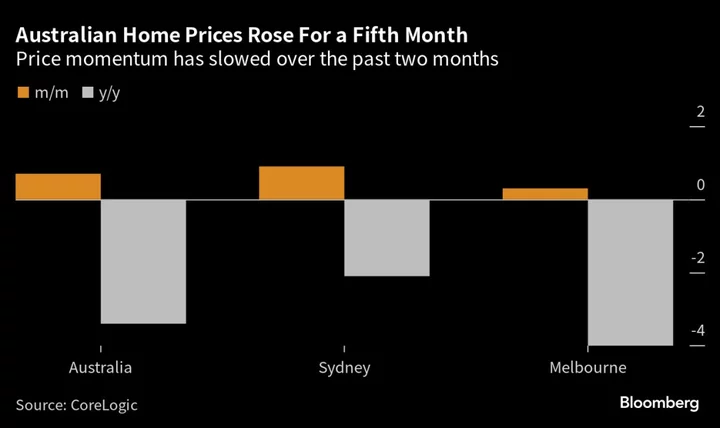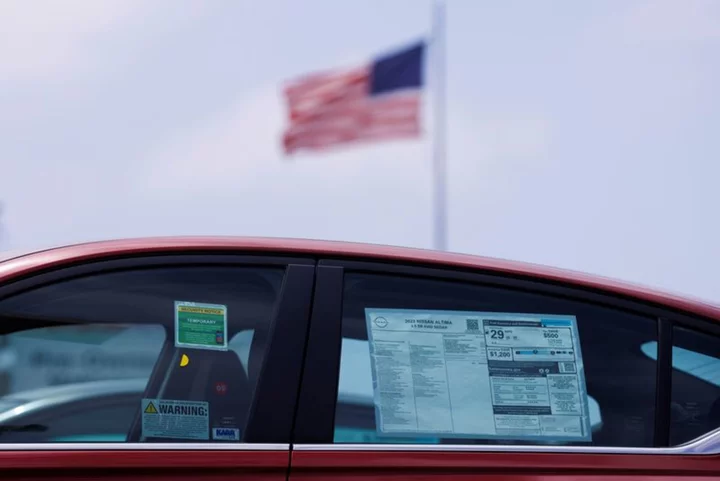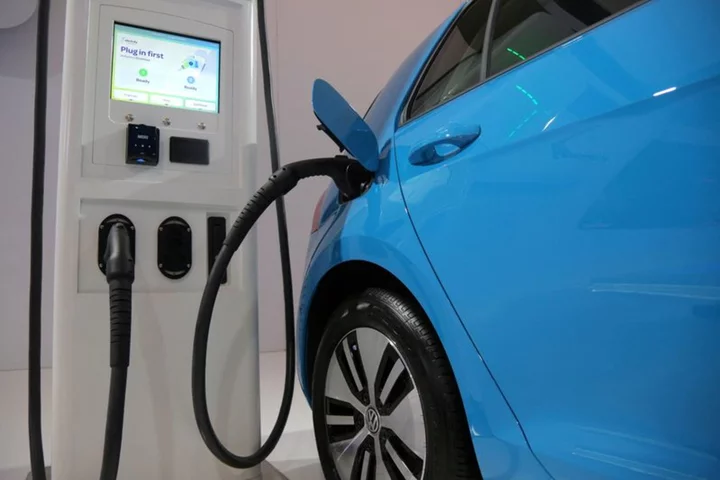By Jason Lange and Andrea Shalal
WASHINGTON Many Americans who voted for U.S. President Joe Biden in 2020 say they believe the economy has faired poorly under his stewardship and that they might not vote for him in the 2024 election, according to a new Reuters/Ipsos poll.
Biden, a Democrat who in 2020 defeated former Republican President Donald Trump, could be on track for a rematch next year against his old foe, who leads the Republican nomination contest and was due in court Thursday to face a third criminal indictment.
Poll respondents were asked which of the two they would vote for "if the election for president were held today," and 19% of Biden's 2020 voters participating in the poll said they either weren't sure or would pick someone other than Biden or Trump. Six percent of Biden's 2020 voters picked Trump.
Forty-two percent of Biden's 2020 voters in the poll said the economy was "worse" than it was in 2020, compared to 33% who said it was "better" and 24% who said it was "about the same."
The poll results underscore a dynamic White House officials are fighting to reverse with visits this month to towns across the country to raise awareness of Biden's efforts to help the economy. Biden himself will visit Arizona, New Mexico and Utah from Aug. 7-10 to hail how his Inflation Reduction Act law will boost manufacturing and fight climate change.
About half the respondents in the poll who voted for Biden in 2020 said they have heard little or nothing of his major policy initiatives to reduce inflation or boost spending on infrastructure.
Most of Biden's 2020 voters in the poll - 78% - said they approved of his performance as president, well above his 40% approval rating among all respondents.
But a critical division exists among Biden's 2020 voters.
Among those who don't approve of his performance, respondents were roughly twice as likely to say inflation was America's biggest problem, compared with the 2020 Biden voters who said the president is doing a good job. Those who approve of Biden put relatively more emphasis on the dangers of political extremism.
"The difference is the focus on inflation and the cost of living," said Chris Jackson, a public opinion researcher at polling firm Ipsos, which conducts polls for Reuters and other media organizations. He added there was still time for Biden to court his wayward supporters.
"They are not off the board. They materially need to be feeling better and they have to think Biden is doing something," Jackson said.
The poll results point to a lack of enthusiasm for Biden and highlights the risks that Democrats might not turn out as strongly at the polls next year and that independents who voted Democratic in 2020 could vote Republican in 2024.
U.S. households have struggled with the most severe inflation in decades under Biden, though the rate of price increases has recently fallen sharply. Economic growth has been modest, though the unemployment rate has fallen to its lowest levels in decades.
Biden's campaign did not respond to a request for comment.
One administration official said measures of consumer sentiment pointed to increased optimism, as has previous Reuters/Ipsos polling showing that people expecting their own finances to improve outnumber those who expect them to deteriorate.
Another administration official, however, said last week that the White House was keenly aware that officials must do a better job of selling Biden's policy successes.
When poll respondents were asked to describe how much Biden and his administration have invested in the U.S. economy, 35% of Biden's 2020 voters selected the option "not enough." Some 53% picked "about the right amount," 3% said "too much" and the rest didn't know.
The poll was conducted online nationwide, gathering responses from 2,009 U.S. adults with a credibility interval of about three percentage points.
(Reporting by Jason Lange and Andrea Shalal; Editing by Scott Malone and Conor Humphries)









